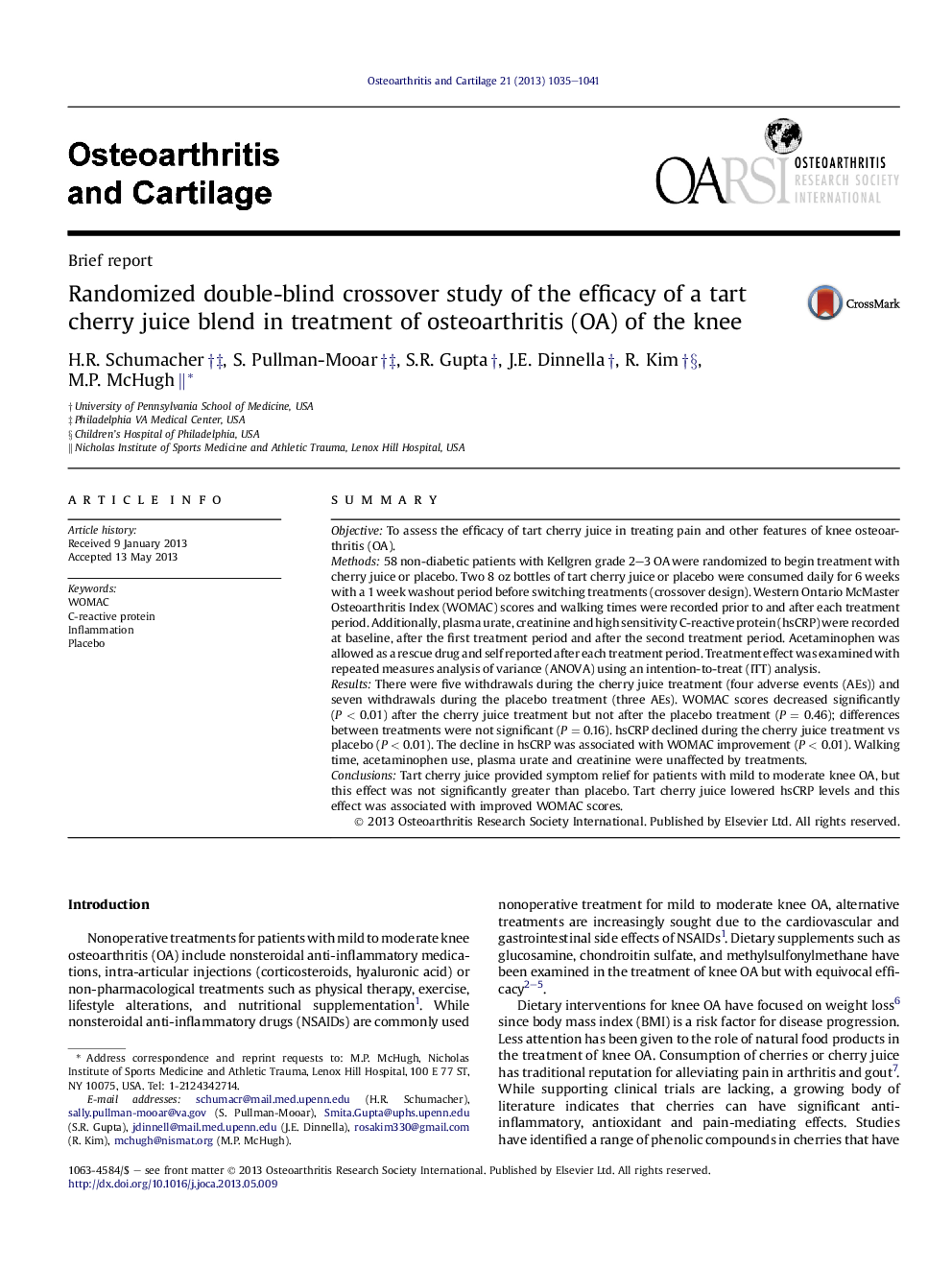| Article ID | Journal | Published Year | Pages | File Type |
|---|---|---|---|---|
| 3379579 | Osteoarthritis and Cartilage | 2013 | 7 Pages |
SummaryObjectiveTo assess the efficacy of tart cherry juice in treating pain and other features of knee osteoarthritis (OA).Methods58 non-diabetic patients with Kellgren grade 2–3 OA were randomized to begin treatment with cherry juice or placebo. Two 8 oz bottles of tart cherry juice or placebo were consumed daily for 6 weeks with a 1 week washout period before switching treatments (crossover design). Western Ontario McMaster Osteoarthritis Index (WOMAC) scores and walking times were recorded prior to and after each treatment period. Additionally, plasma urate, creatinine and high sensitivity C-reactive protein (hsCRP) were recorded at baseline, after the first treatment period and after the second treatment period. Acetaminophen was allowed as a rescue drug and self reported after each treatment period. Treatment effect was examined with repeated measures analysis of variance (ANOVA) using an intention-to-treat (ITT) analysis.ResultsThere were five withdrawals during the cherry juice treatment (four adverse events (AEs)) and seven withdrawals during the placebo treatment (three AEs). WOMAC scores decreased significantly (P < 0.01) after the cherry juice treatment but not after the placebo treatment (P = 0.46); differences between treatments were not significant (P = 0.16). hsCRP declined during the cherry juice treatment vs placebo (P < 0.01). The decline in hsCRP was associated with WOMAC improvement (P < 0.01). Walking time, acetaminophen use, plasma urate and creatinine were unaffected by treatments.ConclusionsTart cherry juice provided symptom relief for patients with mild to moderate knee OA, but this effect was not significantly greater than placebo. Tart cherry juice lowered hsCRP levels and this effect was associated with improved WOMAC scores.
